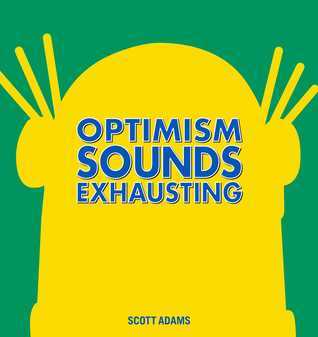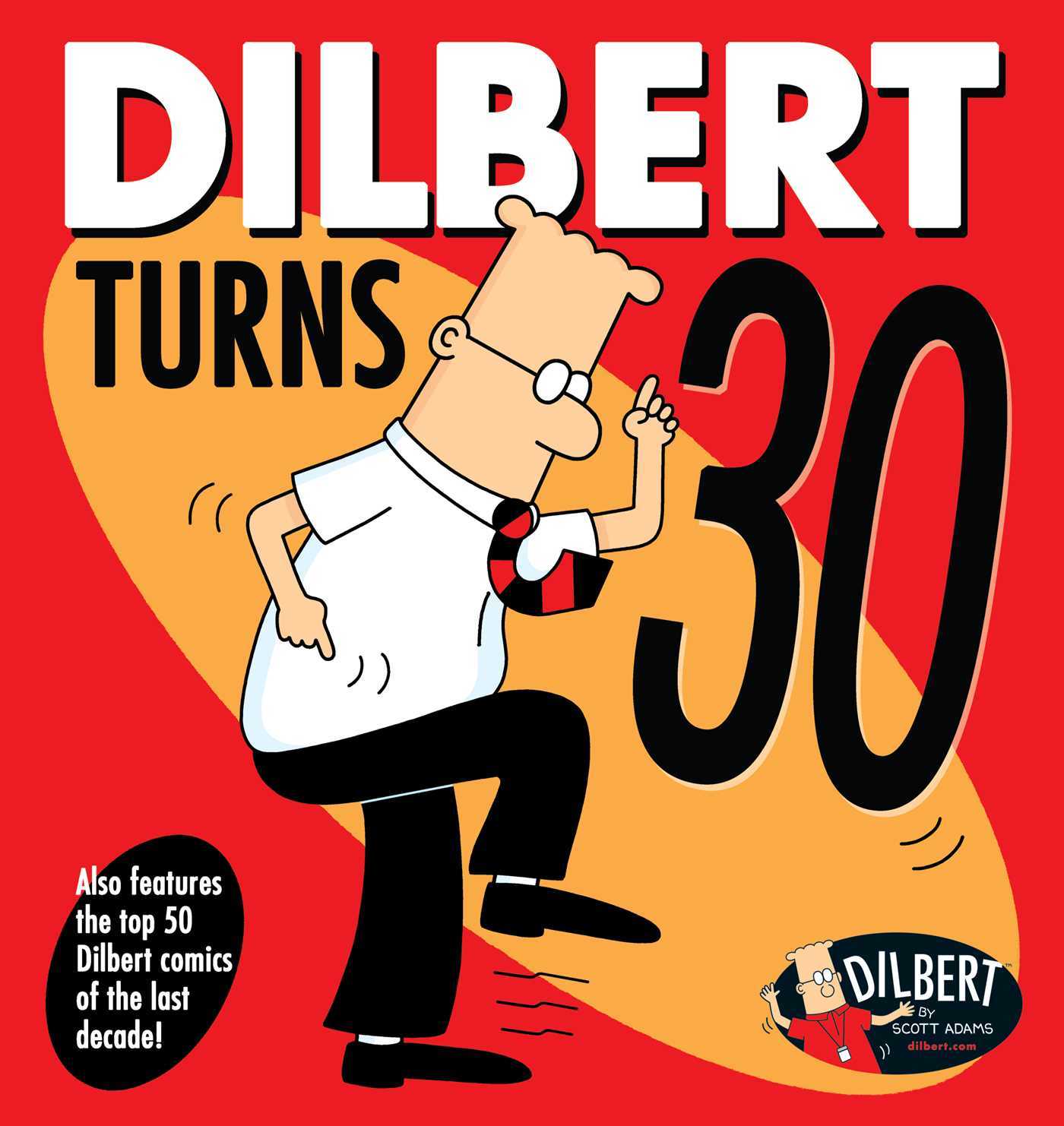


Books in series

Always Postpone Meetings with Time-Wasting Morons
1992

Build a Better Life by Stealing Office Supplies
Dogbert's Big Book of Business
1991

Dogbert's Clues for the Clueless
1993

Shave the Whales
1994

Bring Me the Head of Willy the Mailboy!
1995

It's Obvious You Won't Survive by Your Wits Alone
1995

Still Pumped from Using the Mouse
1996

Fugitive from the Cubicle Police
1996

Casual Day Has Gone Too Far
1997

Seven Years of Highly Defective People
Scott Adams' Guided Tour of the Evolution of Dilbert
1997

I'm Not Anti-Business, I'm Anti-Idiot
1998

Journey to Cubeville
1998

Dilbert Gives You the Business
1999

Random Acts of Management
2000

A Treasury of Sunday Strips
2000

Excuse Me While I Wag
2001

When Did Ignorance Become a Point of View?
2000

Another Day in Cubicle Paradise
2002

What Do You Call a Sociopath in a Cubicle?
2002

When Body Language Goes Bad
2003

Thriving on Vague Objectives
2005

Try Rebooting Yourself
2006

Cubes and Punishment
2007

This is the Part Where You Pretend to Add Value
2008

Freedom's Just Another Word for People Finding Out You're Useless
2009

14 Years of Loyal Service in a Fabric-Covered Box
2009

Problem Identified
And You're Probably Not Part of the Solution
2010

I'm Tempted to Stop Acting Randomly
2010

Your Accomplishments Are Suspiciously Hard to Verify
2011

Teamwork Means You Can't Pick the Side That's Right
2012

I Can't Remember if We're Cheap or Smart
2012

Your New Job Title is "Accomplice"
2013

I Sense a Coldness to Your Mentoring
2013

Go Add Value Someplace Else
2014

Optimism Sounds Exhausting
2015

I'm No Scientist, But I Think Feng Shui Is Part of the Answer
A Dilbert Book
2016

Dilbert Gets Re-Accomodated
2017

Cubicles That Make You Envy the Dead
2018

Dilbert Turns 30
2019

Eagerly Awaiting Your Irrational Response
A Dilbert Book
2020

The Office Is a Beautiful Place When Everyone Else Works from Home
2021
Author
Librarian Note: There is more than one author in the Goodreads database with this name. See this thread for more information. Adams was born in Windham, New York in 1957 and received his Bachelor's degree in Economics from Hartwick College in 1979. He also studied economics and management for his 1986 MBA from the Haas School of Business at the University of California, Berkeley. In recent years, Adams has been hurt with a series of debilitating health problems. Since late 2004, he has suffered from a reemergence of his focal dystonia which has affected his drawing. He can fool his brain by drawing using a graphics tablet. On December 12, 2005, Adams announced on his blog that he also suffers from spasmodic dysphonia, a condition that causes the vocal cords to behave in an abnormal manner. However, on October 24, 2006, he again blogged stating that he had recovered from this condition, although he is unsure if the recovery is permanent. He claims to have developed a method to work around the disorder and has been able to speak normally since. Also, on January 21, 2007, he posted a blog entry detailing his experiences with treatment by Dr. Morton Cooper. Adams is also a trained hypnotist, as well as a vegetarian. (Mentioned in, "Dilbert: A Treasury of Sunday Strips 00). He married Shelly Miles on July 22, 2006.